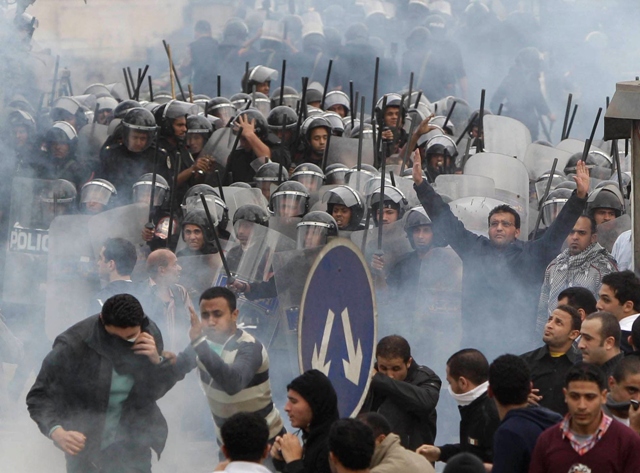Amnesty International’s latest report slams Egypt for making civilians “disappear” as a tactic to spread fear among the population.
An international rights group assailed Egyptian authorities on Wednesday, accusing them of abducting, torturing and using other shocking tactics as a tool to stifle dissent over the past year and a half.
The country’s Foreign Ministry promptly responded, lashing back at Amnesty International and saying the group was being “biased” and that it seeks to “tarnish Egypt’s image.”
The exchange comes as Amnesty released a new report that says there has been an “unprecedented spike” in enforced disappearances since early 2015 in Egypt under the pretext of fighting terrorism. International human rights law defines enforced disappearance as the secret abduction or imprisonment of a person, followed by the state’s refusal to acknowledge that person’s fate.
Amnesty’s report — entitled “Egypt: ‘Officially, you do not exist”’— documents 17 cases that the London-based group says reveal “the shocking and ruthless tactics” of the Egyptian authorities to crack down on government opponents. Rape, electric shocks, and arrests of other family members were also used to force victims to give false confessions.
In the report, Amnesty also quoted a local rights group as saying that three to four people disappear each day in Egypt. The victims range from political activists to children as young as 14, it said.
Philip Luther, Director of the Middle East and North Africa Program at Amnesty International said that “the report exposes not only the brutality faced by those disappeared but also the collusion between national security forces and judicial authorities, who have been prepared to lie to cover their tracks or failed to investigate torture allegations, making them complicit in serious human rights violations.”
Egypt: ‘Biased, Politicized’ and ‘Tarnishing’ Report
Egypt’s Foreign Ministry issued a statement rejecting the report, and saying that Amnesty is “biased, politicized and has special interest in tarnishing Egypt’s image.” The ministry also said that the group depends on one-sided sources of information and on those who are in a state of “animosity toward the Egyptian state.”
Luther noted that Egyptian authorities “have repeatedly denied that enforced disappearances exist in the country.”
After abductions, security authorities use torture to extract confessions, in sessions that last up to seven hours, Amnesty said. The report refers to a case of a 14-year-old boy whose name is provided by Amnesty, describing it as one of the most “shocking” cases of torture. It recounted the repeated rape and abuse of the teen, which Amnesty said was intended to extract confessions.
The boy was among five children whose cases Amnesty documented in the report.
Luther appealed on Egyptian President Abdel Fattah el-Sissi to “order all state security agencies to stop enforced disappearances, torture and other forms of ill-treatment and make clear that anyone who orders, commits or is complicit in such violations will be brought to justice.”
By: AP


